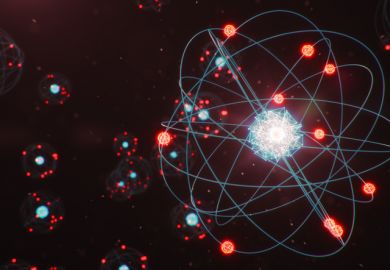Leading academics have called for the creation of science “rebuttal” units to help prevent the spread of false and misleading information about research.
Douglas Massey, Henry G. Bryant professor of sociology and public affairs at Princeton University, and Shanto Iyengar, professor of political science at Stanford University, argue that distrust of scientific study and scepticism about scientific consensuses increasingly stem less from “faulty communication” and more from “the widespread dissemination of misleading and biased information” in the media.
They say that scientists and scientific associations should “anticipate campaigns of misinformation and disinformation” that will inevitably follow the release of findings threatening to partisans on either end of the political spectrum and “proactively develop online strategies and internet platforms to counteract them when they occur”.
In a paper published in the Proceedings of the National Academy of Sciences, Professor Massey and Professor Iyengar say that, in the US, the National Academies of Science, Engineering, and Medicine could “form a consortium of professional scientific organisations to fund the creation of a media and internet operation that monitors networks, channels, and web platforms known to spread false and misleading scientific information so as to be able to respond quickly with a countervailing campaign of rebuttal based on accurate information through Facebook, Twitter, and other forms of social media”.
Professor Massey told Times Higher Education that the national academies liked to frame themselves as being “non-political and above politics” but questioned whether such an approach could continue “when one of the nation’s two principal political parties has become deliberately and self-consciously anti-science”.
“The interest groups that seek to sow confusion and distrust about science put a lot of money and person-power into the effort, and it just seemed to me that scientists need somehow to act collectively with person-power and resources to correct misinformation when it occurs, maybe coordinated by the American Association for the Advancement of Science in collaboration with all the different scientific societies,” Professor Massey said.
Juliet Fall, professor of political and environmental geography at the University of Geneva, said that while the suggestion was “an interesting idea”, the notion of “making scientists into some sort of pre-emptive ghostbusters team seems rather a lot to ask”.
“As we are still learning to respond to media and disinformation, requiring that we – or our professional bodies on our behalf – set up a dormant communication strategy seems pretty unlikely and unwise. As budgets dwindle, I don’t quite see how we could justify this with public spending either,” Professor Fall said.
“I think we risk an own goal if we think we can play the same game of lobbying because we’ll never have the same ability to mobilise and [we’ll] risk our scientific identities in playing that game.”
后记
Print headline: Call for units to quash fake news





